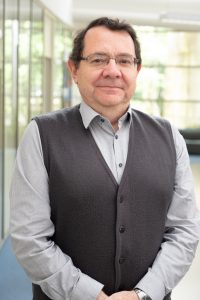“Quantum Spain serves as a unifying element of the quantum computing community that already existed in Spain. A common goal is to promote this technology and provide access to an optimal infrastructure so that the country’s research groups can carry out their research competitively at an international level”.
What is your profession, and how long have you worked in it?
Although I have a PhD in Physics, I must say that my professional orientation turned towards the Information and Communication Technologies sector just before finishing my doctoral thesis. I worked in several companies until 2001 when I started working in the position I still hold today: administrator of the Applications and Projects Department of the Galician Supercomputing Center (CESGA).
What is it that attracted you to Information and Communication Technologies? Why did you want to dedicate yourself to this?
I had the opportunity to do my doctoral thesis in High Energy Physics, where computing -in terms of its conception- was more advanced than usual in other research areas I knew. In fact, at that time, there was a worldwide network of VAX computers from DIGITAL. Fortunately, I was able to work with those computers and even with the Internet. At that time, this tool was only available to some, but we in the Particle Physics department of the University of Santiago did have it. We also had distributed file and collaboration systems that allowed me to work with people from the United States and Geneva.
Over time, the subject of communications hooked me as a professional opportunity since there used to be not many opportunities in physics, but this was one. Therefore, I decided to change and dedicate myself to the Information and Communication Technologies area, where I have worked since 1992. I have done everything in this field: internet implementation, web development in its first versions, and the latest quantum computing projects in which CESGA is involved.
What is/will be CESGA’s contribution to the Quantum Spain project?
CESGA’s initial responsibility is coordinating work package 3, which corresponds to the creation of the support infrastructure and methods of access to quantum computing resources and consolidating a research community.
To achieve this, we will carry out several activities. Firstly, all the supercomputing centres that are part of the RES will have a technician specialised in quantum computing to support researchers that need to use this technology.
Following the objective of consolidating a community, we will develop a training plan in conjunction with the University of Santiago de Compostela, called TalentQ. This initiative will expand the resources available for training people in the quantum computing paradigm, emphasising its applied nature. Also, it will generate new talent by creating a collaborative and dynamic environment; it will train the Spanish technological and scientific sectors in quantum computing tools.
Finally, we will deploy quantum computing emulation infrastructures with the Supercomputing Center of Castilla y León (SCAYLE), the Barcelona Supercomputing Center (BSC CNS) and CESGA, i.e. the use of specific classical computing software to emulate the behaviour of a quantum computer. Researchers and technologists will have three emulators at their disposal to develop and test new algorithms and concepts. These will complement the quantum computer that we will implement.
What do you consider to be the differentiating element of Quantum Spain compared to other quantum computing projects?
There are many styles of quantum computing projects. Quantum Spain has the advantage of being directly supported by the RES supercomputing centres, the natural places where this type of computing can be implemented.
On the other hand, Quantum Spain serves as a unifying element of the quantum computing community that already exists in Spain. There is now a common goal: to promote this technology and provide access to an optimal infrastructure so that the country’s research groups can carry out their research in an internationally competitive manner.
There are other important aspects, such as the technological development that can be carried out with quantum computing, either through the incorporation of the quantum computer that will be installed in Barcelona, or through the development and improvement of emulators.
What do you think the contribution of Quantum Spain will be to the national research field? Do you see potential in this project and quantum computing in particular?
When we talk about quantum computing, we talk about many types of this technology, four or five models. Quantum Spain is more focused on digital quantum computing.
One of the potentialities of quantum computing is that it offers the opportunity to solve almost intractable problems from a classical computational point of view. One of the most famous problems is Shor’s factorisation algorithm. This is an algorithm known to be very efficient theoretically in quantum computation and practically intractable in classical computation. This is what is commonly called quantum supremacy, i.e. problems that can only be treated with quantum computation.
However, it should also be noted that quantum computing can generate better solutions to problems that can also be solved classically, even if they are not exact. This may be the case for chemistry problems of great industrial and societal interest, for example, where we may have approximate classical algorithms that are not good enough for some of the objectives sought. With quantum computing, we hope to obtain adequate solutions to these problems.
Another advantage of quantum computing has to do with energy consumption. If there is a solution that can generate both classical and quantum computation, the latter will probably require less energy. So, even if the solution is the same, if we can solve it with less energy.
Do you have any advice for young researchers, physicists, or computer scientists who could develop professionally in quantum computing?
To a computer scientist, I would say “you have the opportunity to participate in the next revolution and build a new computer science from scratch because we are practically building it. It’s the same thing done with classical computing in the fifties, sixties. A new kind of computing is being made, requiring different thinking and knowledge.
The message I would give to a physicist is different. It would be: “You are going to be part of the revolution of the future, but in addition to this, you will have the opportunity to experience what you have learned. You will be able to apply your knowledge of quantum physics in an exciting field.





